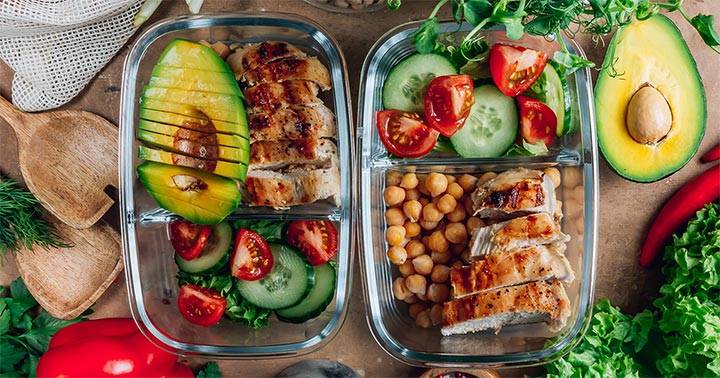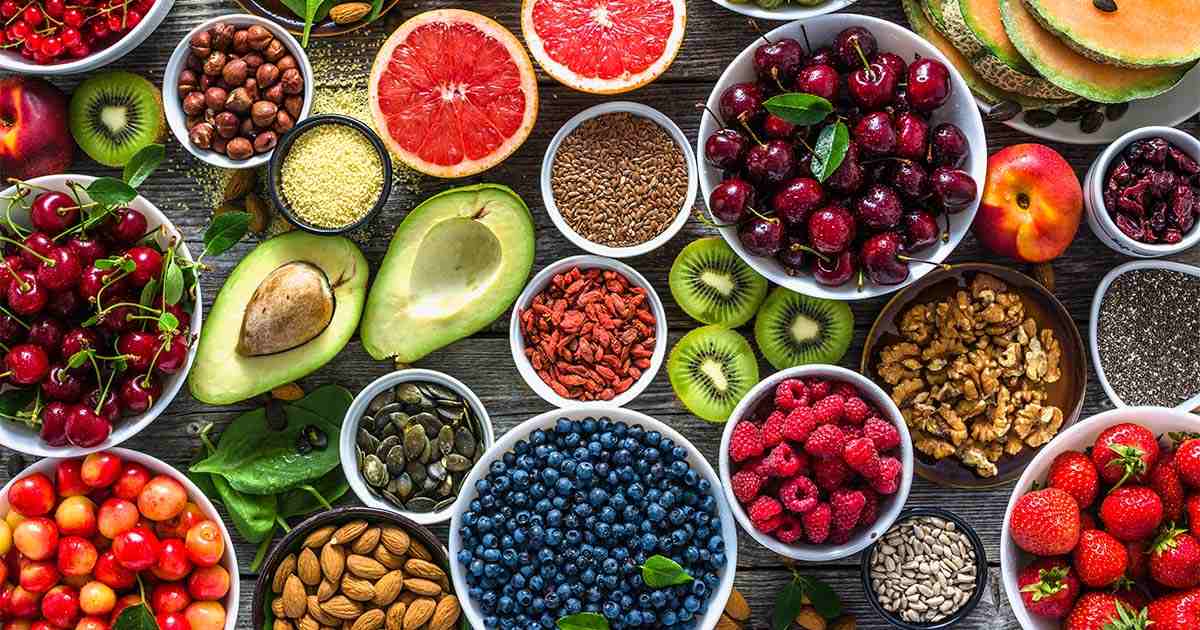You may have seen a gym-goer drinking protein shakes – and for good reason. Eating proper amounts of protein is a great way to build strength. However, muscle health isn’t solely based on protein intake – other foods can help strengthen muscles as well.
Whether you are dealing with muscle loss or looking to improve your strength and fitness, learn about how you can use food as fuel to strengthen your muscles.
Common muscle problems in older adults
As you age, it is common to lose some muscle mass or definition. But if you start experiencing muscle weakness, you could be dealing with sarcopenia.
Sarcopenia is age-related loss of muscle mass and strength. Studies are inconsistent regarding the prevalence of sarcopenia considering many older adults never get a diagnosis. However, it is estimated that between 5 and 50% of older adults experience sarcopenia.
Another common muscle problem in older adults is osteoarthritis. This occurs when the joints in the bones break down and cause pain and stiffness. According to a recent study, nearly 1 in 3 people over the age of 65 have osteoarthritis.
Although eating certain foods won’t treat a condition, it may help prevent or improve symptoms if you are experiencing a common muscle problem.
Foods that help strengthen muscles
Foods that are high in protein are best for gaining or maintaining muscle mass – we’ve learned that from our gym buddies! Learn more about what types of food contain the most protein and how it may help aid your muscle-strengthening process.
A few high-protein food sources include:
- Eggs
- Eggs are great sources of protein. They also contain leucine which helps maximize how the body synthesizes protein to build muscle.
- Poultry
- Meat is a great source of protein, and poultry is some of the leanest meat available. Poultry, like chicken breast and turkey breast, also contain B vitamins which help your body function during physical activity.
- Lean beef and lean jerky
- Beef is a good source of protein too, especially beef with reduced fat content. Beef is also very low in its calorie-to-protein ratio.
- Seafood
- Seafood is another excellent source of protein. This can include salmon, tuna, shrimp, tilapia and scallops. Seafood is also high in omega-3 fatty acids, which play an important role in the health of your muscles.
- Dairy products
- Did anyone tell you as a kid that drinking milk meant strong bones? They were right! Greek yogurt, cottage cheese and cow’s milk all have high protein content.
- Beans and legumes
- Protein doesn’t have to be just for carnivores. Black, pinto, soy and kidney beans are all a great source of protein too.
- Tofu
- Tofu is another option for vegetarians. It is a high-quality plant protein and a great choice if you are subbing out meat.
As mentioned, foods other than protein can also help fuel and strengthen your muscles, especially carbohydrates since they help energize your body.

Other foods that support muscle strength include:
- Quinoa
- Quinoa is a great source of carbohydrates, which help provide energy to fuel your muscles.
- Chickpeas
- Similar to quinoa, chickpeas are a good source of carbohydrates. They even have protein in them as well.
- Peanuts and almonds
- Nuts are a great option to increase protein, healthy fat and carbohydrate intake. It may be a small snack but it can help energize and keep you full for hours.
- Brown rice
- Brown rice is a great healthy carbohydrate. It helps give your muscles a greater stimulus to grow strong.
Foods that don’t help strengthen muscles
Although the above foods help strengthen your muscles, if you aren’t eating a balanced diet, other foods can hinder that progress. For example, if you’re eating good sources of protein for breakfast and lunch but then have pizza, cookies and soda every night for dinner, you may not see any progress.
And if you’re looking to help strengthen your muscles, sometimes it helps to just avoid certain foods that are known to hinder the muscle-strengthening process.
Some foods that don’t help strengthen muscles include:
- Alcohol
- Processed foods like white bread, potato chips, snack crackers
- Fried or greasy foods like chicken tenders, pizza, burgers
- Refined carbohydrates and added sugars that don’t come from natural sources like cereal, cookies, cakes, etc.
- Sweetened beverages like soda
The importance of a balanced diet
Eating to strengthen your muscles isn’t only about focusing on high-protein foods or avoiding refined carbohydrates. It’s important to maintain a balanced diet too!
Incorporating colorful fruits and vegetables is a great way to ensure you get a wide variety of nutrients and vitamins to help further support your muscle strength. Learn more about adding color to your plate here.
Additionally, it’s important to maintain proper hydration. When you drink water, it helps transport nutrients to your body and remove waste. But when your body is dehydrated, it can impair muscle function or recovery.
It is generally recommended to drink eight glasses of water a day, but the amount you need can vary on other factors such as your activity level or overall health.
If you are interested in building a balanced diet that prioritizes muscle strength, you may want to work with a dietitian or nutritionist. These health care professionals can build out specific meal plans and provide personalized advice based on your specific dietary goals and needs.
Follow the diet that’s best for you
While you won’t build strong muscles overnight from eating chicken breast every day, incorporating high-protein foods – in addition to healthy carbohydrates and fruits and vegetables – can support your muscles and overall well-being.
The foods in this article are generally associated with strong muscles. However, it may not be advisable for everyone to follow a high-protein diet. Please consult your physician or health care professional before making any big changes to your diet or lifestyle.
 Back to Resource library
Back to Resource library
Browse top categories
At Enhabit our patients are our number one priority. From providing the latest medical practices to building deep personal connections, we’re focused on upholding every patient’s dignity, humanity and sense of control on their health care journey.
Home health
Our home health services give patients access to the care they deserve in the comfort of their own homes. From disease and injury management to recovery from surgery, our clinicians help patients confidently achieve their health care goals.
Hospice care
Our hospice care services place importance on the comfort of every patient living with a terminal illness. Our caring professionals are dedicated to providing not just physical care, but spiritual and emotional support to every patient and their loved ones.



